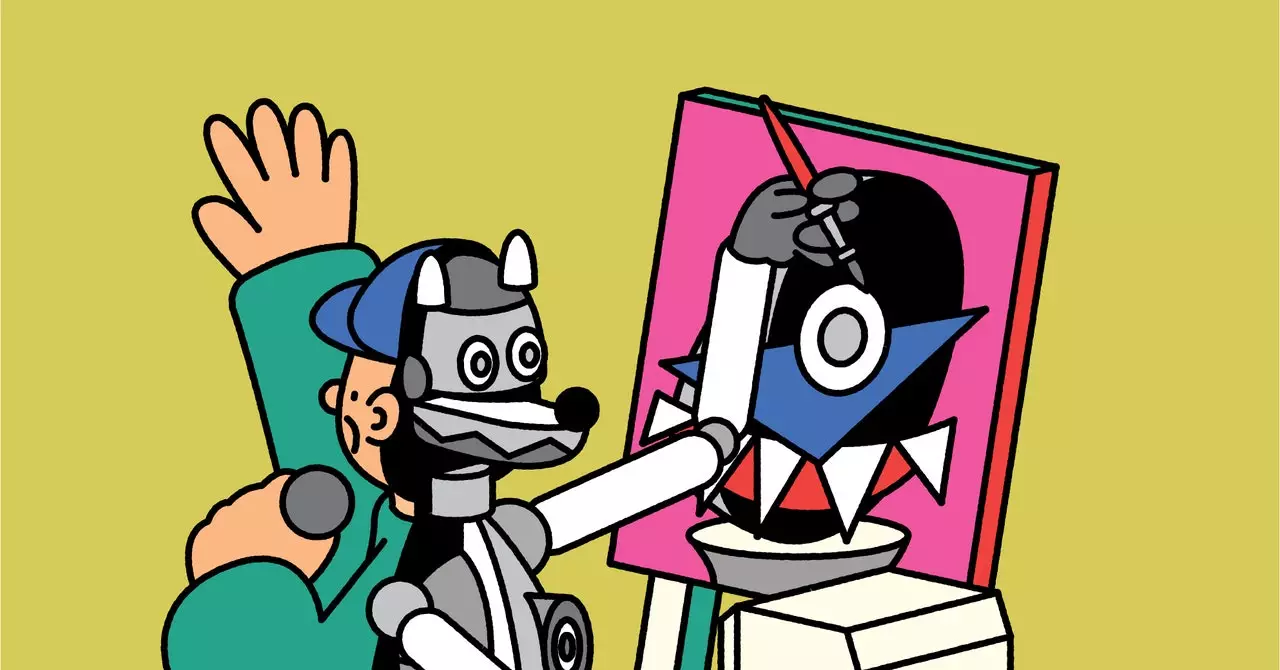As we welcome the advancements of artificial intelligence, particularly with the emergence of sophisticated language models like ChatGPT, a wave of uncertainties and fears has swept across various sectors. The discourse surrounding AI often centers around the concern that it might usurp roles traditionally held by humans, stifling creativity and innovation in the process. The complexities of regulation and ethical implications linger heavily on the minds of both creators and consumers. However, as we look forward to 2025, it is critical to analyze the potential for AI to enrich human creativity rather than simply diminish it. One genre where this evolution is already visible is hip-hop, a dynamic cultural force poised for transformation.
Historically, innovations in music have often faced skepticism from purists who fear that they undermine the authenticity of the art form. The advent of AI in music production, particularly in hip-hop, promises to add further layers to this debate. The rise of AI-generated songs, such as those that emerged during the recent hip-hop rivalry between Drake and Kendrick Lamar, signals a shift towards a new era of music-making. These AI compositions, often mistaken for authentic tracks, invite us to consider an era where machines not only assist but also drive the creative process.
In this burgeoning scene, the relationship between hip-hop artists and technology represents not just a toolset, but a canvas on which future collaborations will thrive. As AI becomes more embedded within the industry, it will serve as both an enabler and a challenger, compelling artists to navigate their identities and expression in dynamic ways. The era of AI-assisted artistry could redefine what it means to create music, posing questions about ownership and authenticity in a new landscape.
Looking ahead to 2025, we can anticipate a triadic framework of creative engagement with AI in hip-hop. The first approach can be termed “full surrender” to the technology. This perspective advocates for leveraging artificial intelligence to produce vast quantities of music—potentially unlocking an unprecedented volume of new sounds. While artists may opt to step back from traditional roles, the human element will persist in crucial areas like curation and commentary. Just as social media influencers shape cultural narratives today, a new breed of critics will emerge to analyze and contextualize AI-generated music, guiding listeners through this torrent of digital output.
Next is the “hybridization” of creativity, where artists merge their talents with AI capabilities. This represents a collaborative model where machines might remix and reimagine classic tracks, potentially creating a unique blend of genres. For example, the playful use of AI-generated country renditions of hip-hop songs highlights the lighthearted potential of this collaboration. Furthermore, we may witness the rise of AI-assisted battle rap, which utilizes algorithms to inform lyrical competition, allowing for an engaging interplay between human artistry and machine learning.
Lastly, as the volume of AI-generated creations surges, a curious irony may take shape: the elevation of traditional human-made art forms. The sheer abundance of AI works will heighten the value of relics from the past, encouraging a resurgence of interest in the analog roots of hip-hop. As contemporary creations flood the market, society may find itself yearning for the significance and historical context of the foundational works that shaped the genre, promoting a renaissance of appreciation for the pioneers of hip-hop.
The intersection of AI and creativity will undoubtedly reshape the hip-hop landscape by illuminating elements of its past. Such a revival could prove essential for artists whose contributions went unrecognized during their time. For instance, the disproportionately low representation of hip-hop artists in institutions like the Rock & Roll Hall of Fame illustrates the genre’s historical undervaluation. Yet, as AI art revitalizes interest in authenticity, we may find a renewed appreciation for the fundamental art of hip-hop.
This dialogue between AI and traditional artistry opens doors to new income streams, allowing artists to potentially monetize their contributions to AI training datasets. As hip-hop collaborates with emerging technologies, we can revel in a future where the complex layers of cultural expression coexist, transcending boundaries imposed by technology.
While the path forward may appear tenuous, 2025 holds promise for a transformative relationship between creativity and AI. Hip-hop, with its rich history and adaptability, is poised to navigate this technological era with resilience. Just as the genre has evolved over the decades, so too will its narratives as we explore the interplay between human ingenuity and artificial intelligence—illuminating a landscape where both creativity and technology flourish together.

